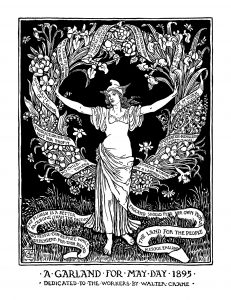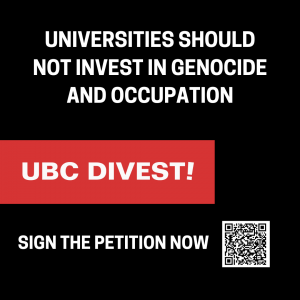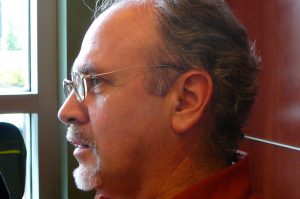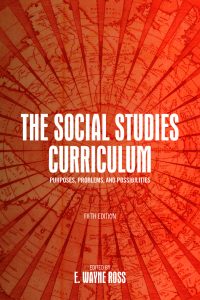UBC Profs’ perverse interpretation of the University Act lays bare a hidden agenda
Posted on April 16, 2025
by Liza Hughes
Universities are a crucial social space of free expression, exchange of ideas, and academic debate.
Universities are not meant to be sanitized from political thought or discourse. The recent lawsuit brought by UBC professors and one former graduate student in the name of free expression is a perverse interpretation of the prohibition of political activity under the University Act that cannot be justified from a civil liberties lens.
The University Act requires that universities be “non-sectarian and non-political in principle.” In our view, this is to create a buffer between government and university. It functions to ensure that universities do not become tools of indoctrination for state-sponsored religions or ideologies.
BCCLA fully supports the need to keep universities free from state interference, which is why we condemn this case. We disagree with the interpretation of the University Act advanced by the petitioners and raise alarm at a lawsuit that considers diversity, equity and inclusion (DEI) values, land acknowledgements, and faculty statements of solidarity to be inconsistent with civil liberties.
The UBC petitioners allege that acknowledging unceded territories, promoting DEI values, or faculty members denouncing state violence are political actions prohibited by the legislation and that they limit academic freedom.
However, their interpretation of “political” is ultimately self-defeating. Acknowledging that you are on unceded land is no more political than refusing to do so. Muzzling faculty will not advance academic freedom. Claiming that DEI values are “political”, while other value-laden concepts like academic freedom are not, is nonsensical.
Academic freedom includes the rights of university groups to speak out about important social issues including Indigenous Peoples’ inherent rights, issues of power and oppression, and genocide. Civil liberties include the rights of diverse voices to be heard and protected through promoting diversity, equity, and inclusion values.
It is paradoxical to claim that an acknowledgement of Indigenous rights undermines the colonial state and is therefore political.
Remaining “neutral” necessarily supports the status quo, which in itself is a political act.
Advancing a legal argument that universities should be prevented from acknowledging land theft or colonial occupation enforces and enables genocide denialism.
Genocide can only occur when it is supported and enabled by powerful institutions, both in Canada and abroad. Canadian institutions have supported, enabled, and enacted genocide of Indigenous Peoples since the formation of the country, and these genocidal acts and their legacy continue to this day. Denial of these facts is support for genocide and ought to be condemned by any rights-respecting person or institution.
The petitioners use the guise of civil liberties as a thin veil to cover genocide denialism.
It undermines the very ethos of civil liberties to assert that these liberties are incompatible with free expression on important political issues.
As civil libertarians, we believe that free expression, including expression of faculty members, drives critical, constructive discourse. We disagree that it is necessary or beneficial to silence faculty members in order to protect dissenting voices.
If academic freedom is at stake here, it is a matter to be dealt with by the University itself. This case invites the very political interference that the University Act is meant to prevent.
A principled civil libertarian would conclude that complete deference to the state, enforced by the courts and legislation against a university, is an inexcusable overreach of political power.
There is no social space free from political context. Outside university walls, Land Defenders are stripped of civil liberties; small gains towards uprooting oppression through promoting DEI values are being thwarted by powerful institutions; and voices expressing solidarity with Gaza are being systematically repressed.
This lawsuit is a calculated step backwards. It is not about freedom, academic or otherwise. It is telling that the petitioners challenge these three acts in tandem. Although they are conceptually and legally distinct, they all represent a shift away from colonial dominance. It aligns with a broader global trend moving away from equity values and actively concentrating power and resources within a small, privileged group.
People in Canada have come to understand that our diversity is our strength. That there is room for all of us.
The acknowledgement of existing power dynamics is one small step towards creating a more equitable environment where true freedom, including academic freedom, can flourish.
The notion that DEI commitments are unacceptably political for the university environment weaponizes the fact that marginalized people are politicized just by existing, participating, and taking up space.
This claim is a desperate attempt to hold onto power. It is not a new or edgy idea; it is the tired and dying battle cry of an old guard that is not willing to accept true competition in ideas or opportunities. It is an attempt to maintain status quo and the privilege it offers some, not an effort towards political neutrality.
BCCLA is deeply disturbed to see a past member of our Board of Directors, Andrew Irvine, taking a position that is so deeply antithetical to civil liberties and values of liberty, equality, and justice. We emphatically denounce the notion that land acknowledgements conflict with civil liberties, or that equality initiatives that acknowledge and attempt to remedy structural power dynamics are unacceptably political.
Civil liberties are not a commodity to be horded by the privileged few. Freedom cannot exist alongside oppression. At a time when equality rights and freedom of expression for equity-denied groups are increasingly under attack, BCCLA continues to champion an expansive interpretation of civil liberties that includes the rights of all.





